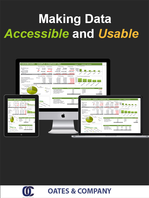When it comes to running your business processes, having an enterprise resource planning (ERP) system is highly advantageous. More and more frequently, ERPs are being used in the cloud, which has even more advantages, including:
Security
 Giving your employees access to an in-house ERP from outside the network has many security issues. You run the risk of having your data stolen or, if you work in an industry with privacy laws, the risk of violating government regulations. With a cloud-based ERP, however, your data is accessible from outside your physical walls while remaining secure.
Giving your employees access to an in-house ERP from outside the network has many security issues. You run the risk of having your data stolen or, if you work in an industry with privacy laws, the risk of violating government regulations. With a cloud-based ERP, however, your data is accessible from outside your physical walls while remaining secure.
Access
From sales teams to traveling members of management to employees who work remotely, a cloud-based ERP provides universal access to your business processes for key employees. In the cloud, you can access your data from anywhere with an internet connection, and from almost every mobile device imaginable.
Backed Up Information
One of the main advantages of the cloud is the data infrastructure behind it. With multiple servers, redundant systems, and a frequent backup schedule, a cloud-based deployment is less likely to break down and cause you to lose all of your data.
Integrated Communication
ERPs offer instantly updated, real-time information across your entire organization. That means it doesn’t matter if your employees are all in one office or spread out over the world -- they can all view the same information at the same time. Because of that, employees are better equipped to make decisions and collaborate with their coworkers.
Analytics
With the full resources available through a cloud-based ERP deployment, you can swiftly access data and analytics wherever you may be.
These are merely a few of the advantages offered by cloud-based ERPs. Focus on improving core processes, improving customer service, and growing your business instead of worrying about the above issues.
For more information about cloud-based ERPs, please contact Oates & Company or leave a comment below.



